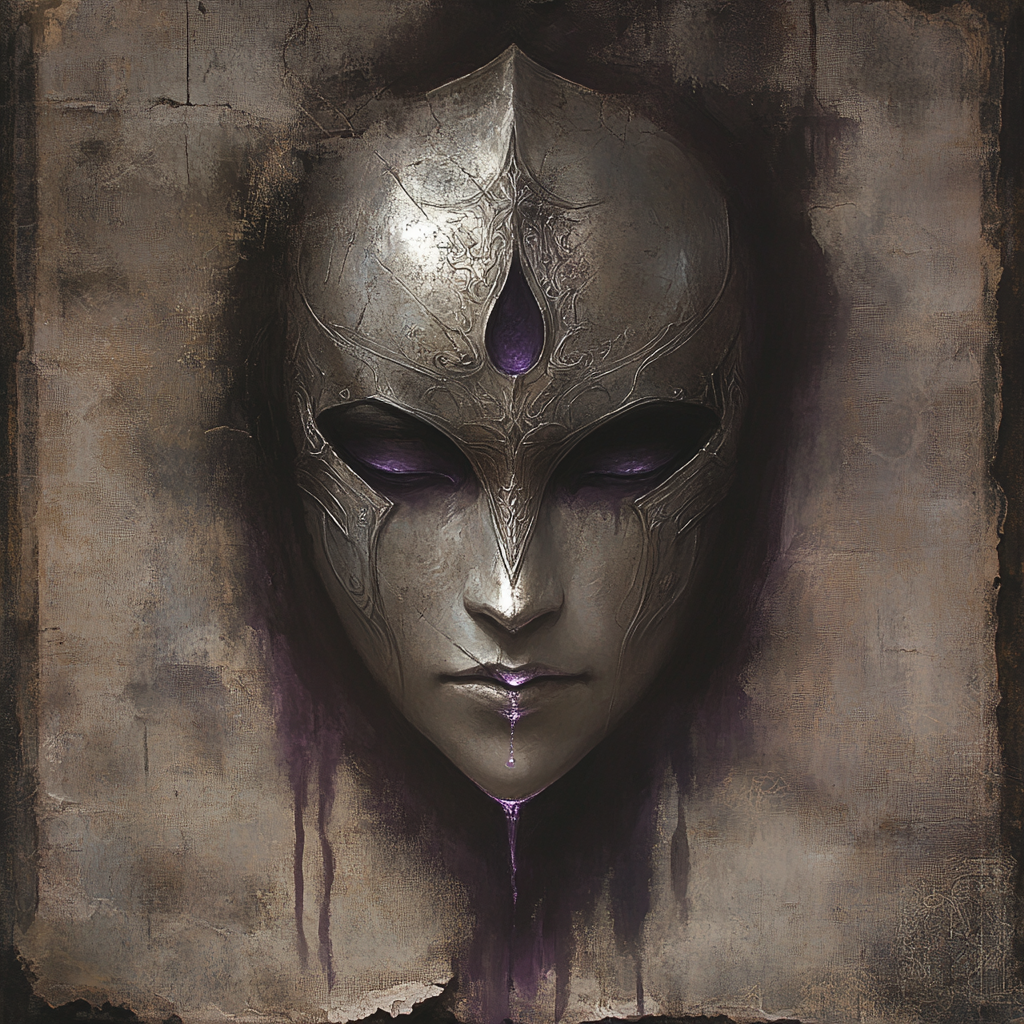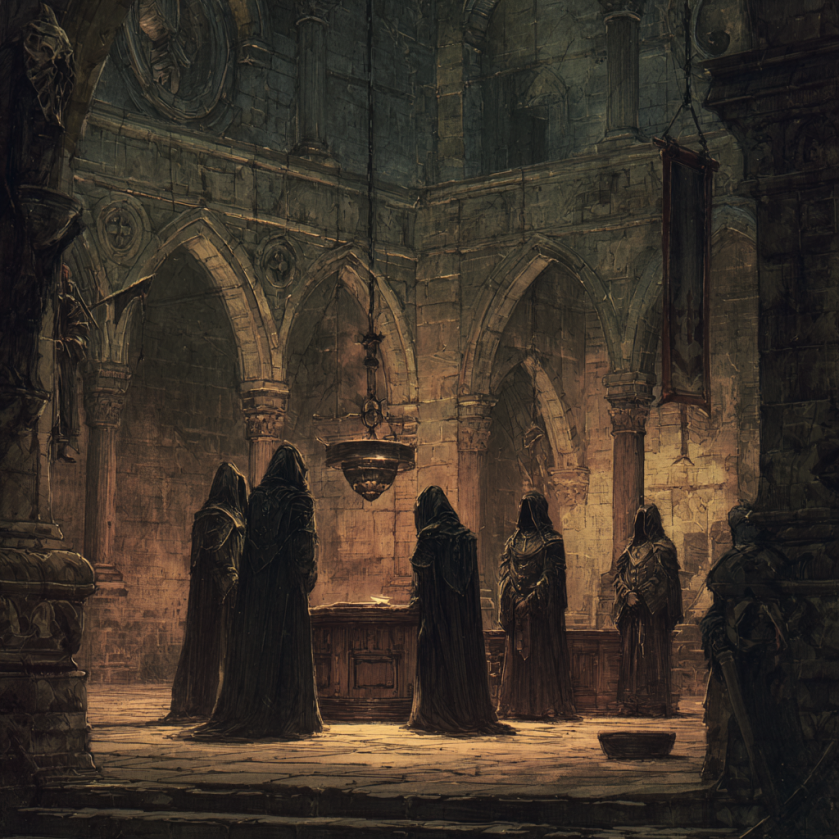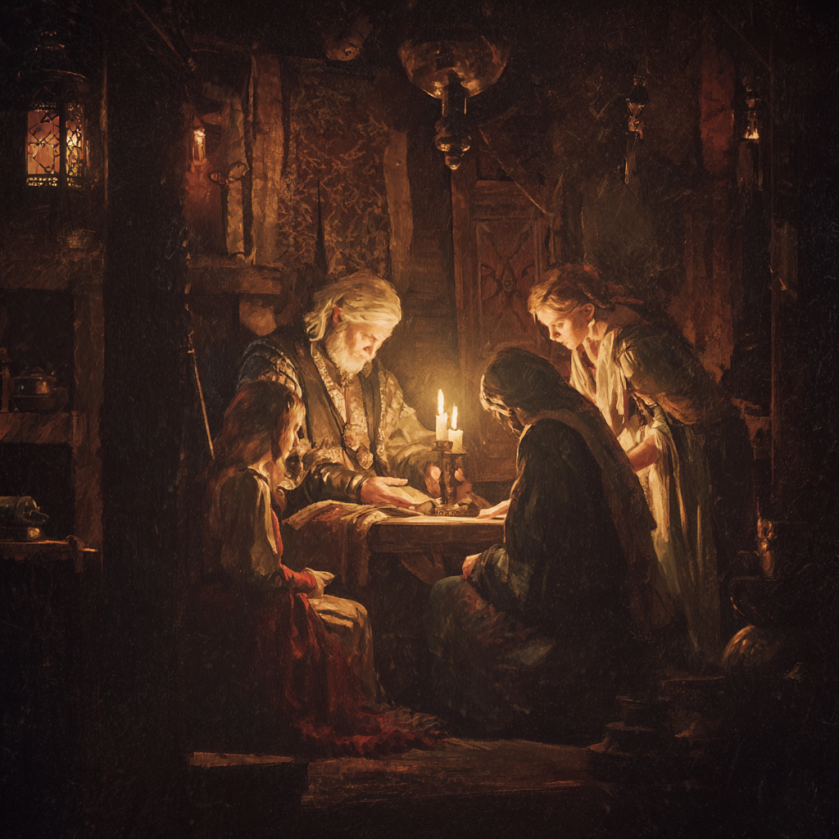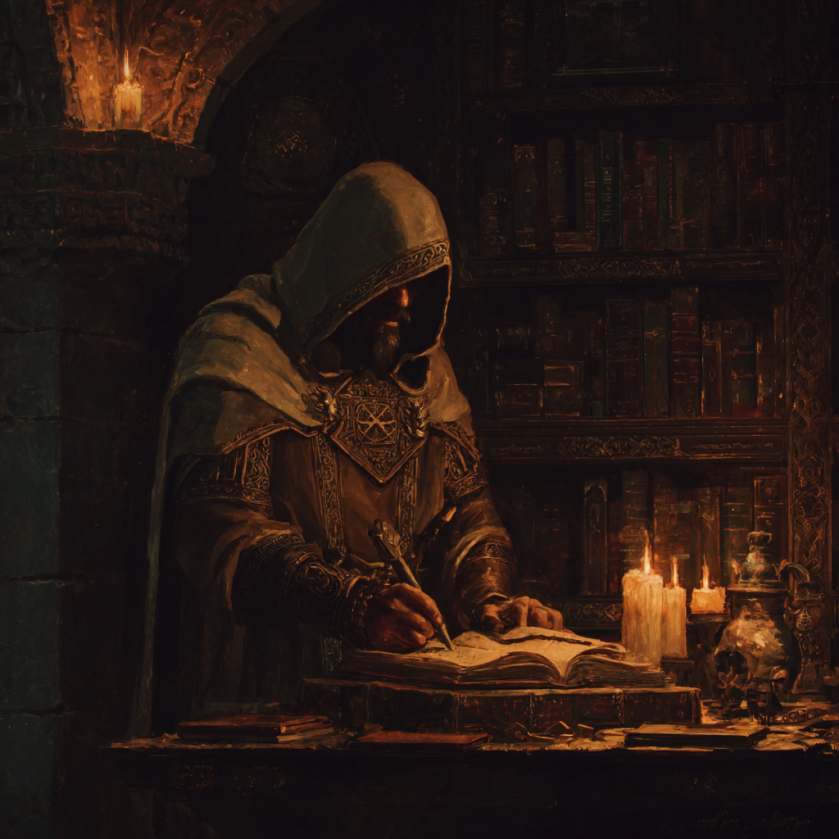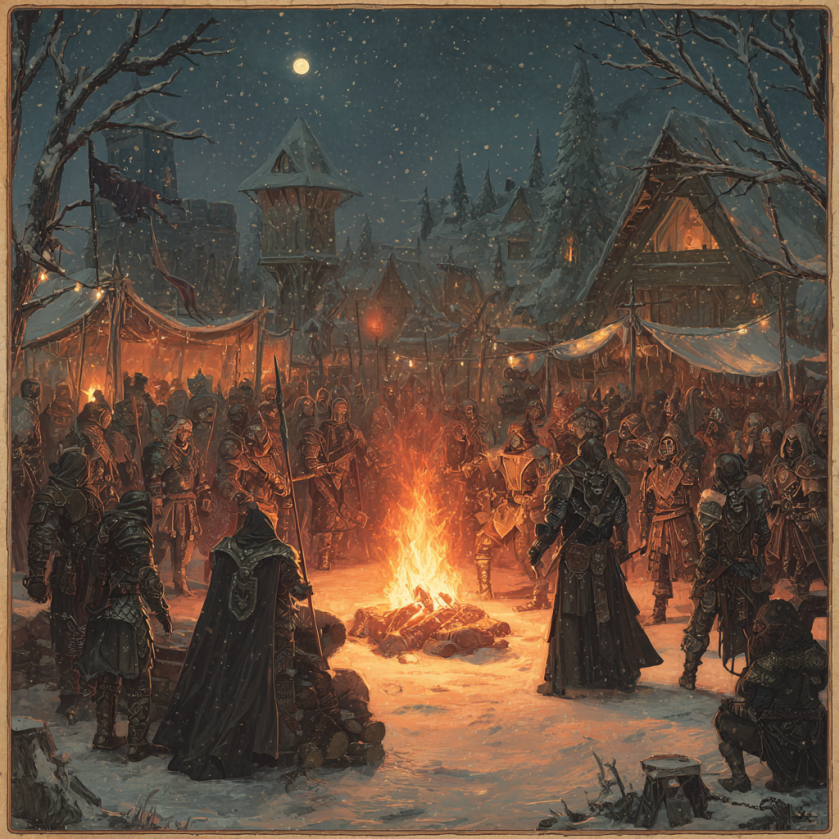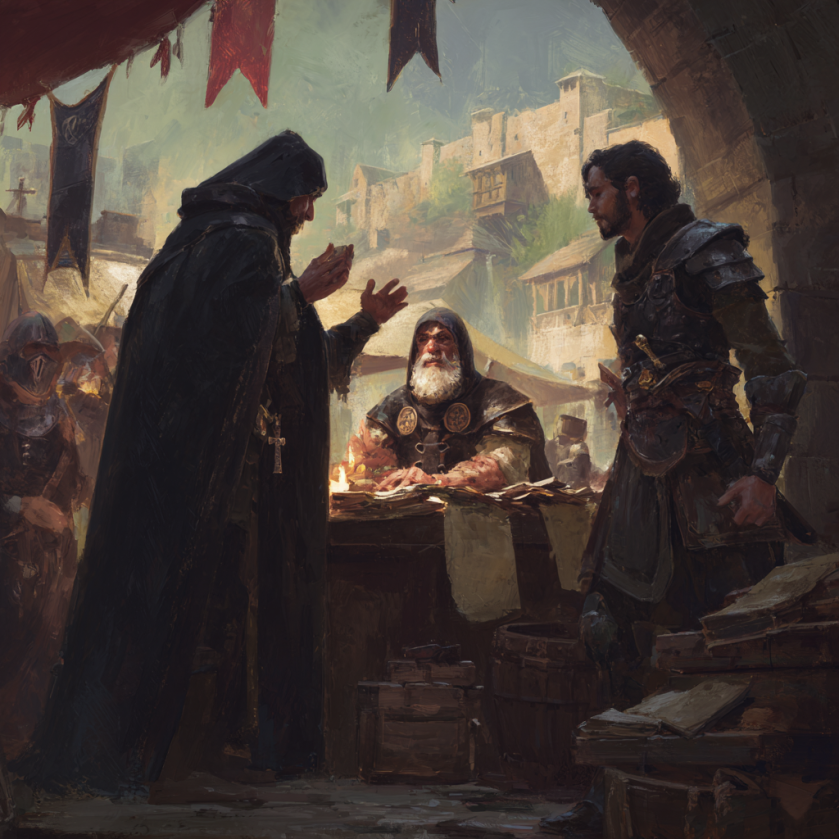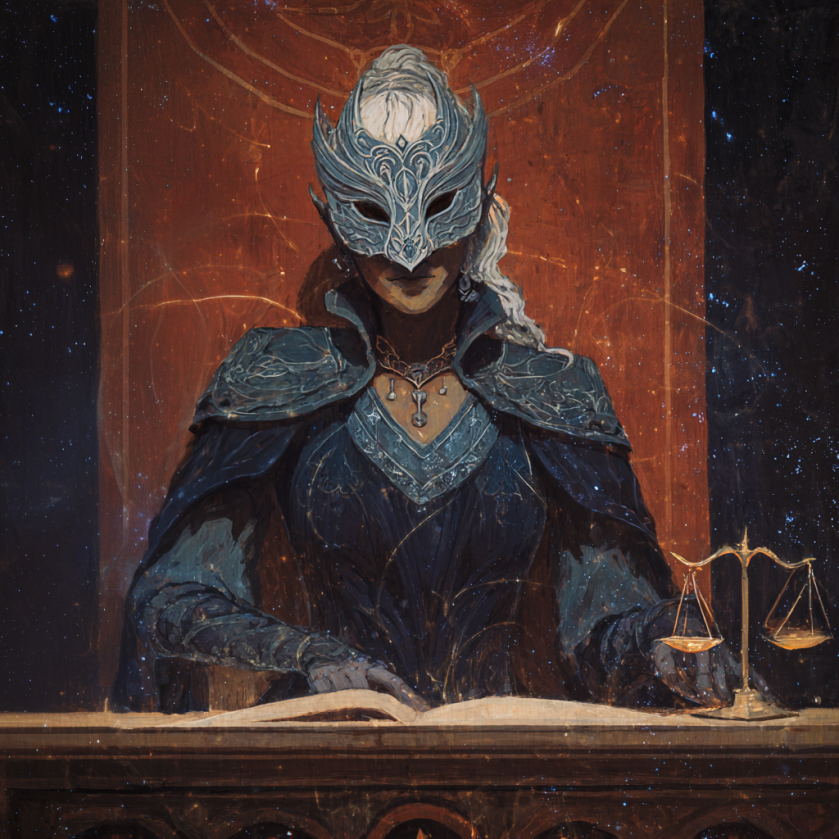Mōrga - The Gray Faith
Domains: Shadows, Judgment, Knowledge, Boundaries
The Necessary God
Mōrga runs the courts, guards the borders between life and death, and decides what knowledge stays locked away. She's not loving, but she's reliable. She keeps the world running while other gods fade or abandon their duties. When disasters need preventing, hard choices need making, and dangerous knowledge surfaces, Mōrga's priests handle it. The alternative is chaos.
From the Shadowlands, she guards against the hells below while judging which souls pass through. Her church maintains civilization's boundaries - what gets taught, which books stay sealed, when mercy outweighs justice. Most people keep household shrines and make offerings before major decisions, knowing she listens even if her answers aren't comfortable.
Divine Nature and Power
Mōrga is stern, protective, and fair - more than most gods offer. She's not cruel, but she's not gentle either. In a world where the wrong knowledge can summon disasters and the dead don't always rest, someone has to make hard choices. She makes them and expects her faithful to accept them.
While Solm's light fades with The Fade, Mōrga remains accessible and active. Some theorize she's growing stronger as desperation drives more worship her way. Her church doesn't comment on such speculation, but her priests' powers haven't diminished.
She expects obedience but rewards competence. She's the goddess who tells you hard truths and expects you to handle them. When she judges, she considers circumstances. When she protects civilization, she means it.
Worship and Believers
Why People Turn to Her
She shows up. Through her priests, through answered prayers, through fair judgment. She gave mortals laws that actually work, not impossible ideals. She stands between the Material Plane and the hells, filtering souls and blocking incursions.
The average person maintains a household shrine, makes offerings before major decisions or legal proceedings, and counts on her priests to keep society functional. Her silver mask symbol marks shrines throughout the cities.
The Faithful
Those who join her church serve as judges, archivists, and wardens. They're not zealots - they're civil servants with divine backing. Her priests reflect her nature: professionally compassionate but ultimately unbending when it comes to law and protection.
The Priesthood
Her priests perform society's difficult work: criminal trials, dangerous investigations, funeral rites that ensure the dead stay buried. They maintain libraries with restricted sections, oversee executions, and sometimes help people forget things that would break them.
When a merchant dispute needs settling, when someone's uncle starts raising the dead, when a scholar finds a book that whispers names - you call Mōrga's priests. They handle the work no one else wants but everyone needs done.
Her priests run the courts, oversee restricted libraries, and deal with problems requiring both authority and discretion. They're judges, executioners, censors, and border guards against supernatural threats. Not particularly beloved, but absolutely necessary.
Sacred Architecture
Her temples anchor every major district, built from dark stone with windows that never quite illuminate the corners. The architecture feels ancient and solid - these buildings will outlast the cities around them.
Services follow orthodox liturgy unchanged for centuries: formal chants in Old Common, proper incense patterns, confessions behind shadow-screens that protect identity but don't guarantee forgiveness. Priests translate for those who need to understand, but the ritual forms remain intact.
Her symbol - a silver mask half-seen through shadow - watches, evaluates, decides from every shrine and temple wall.
Sacred Observances
Mōrgal
15th of Deep
The winter feast celebrating judgment and protection transforms the darkest nights into controlled social release. Normal rules bend during masked feasts where people speak freely without consequence, theatrical trials where communities playact grievances with exaggerated drama, and pointed gift exchanges addressing debts and slights.
The masks matter. Behind them, the baker tells the mayor exactly what he thinks, old grudges get aired in ways that make them smaller, and tensions diffuse rather than explode. By morning, people return to normal roles with pressures released through ritual rather than conflict.
The faithful consider this their most important observance - sometimes you maintain order by temporarily suspending it.
Sacred Orders
Grey Knights
The martial arm handling supernatural threats and enforcing divine justice where local authorities cannot. Their silver-and-gray armor bears the half-masked symbol, and their presence signals something has gone very wrong indeed.
These grim warriors appear when problems exceed normal solutions - when the dead won't stay buried, when forbidden knowledge escapes containment, when hell's borders weaken.
Daily Faith and Practice
Most religious activity happens at family altars and workplace shrines. Her priests serve as judges, mediators, and problem-solvers when supernatural complications arise. People make offerings before important decisions and count on her temples for dispute resolution.
She's reliable and fair. When dangerous knowledge surfaces, when the dead won't stay buried, when disputes need neutral arbitration, people turn to her priests. Her church handles civilization's necessary functions that others won't touch.
Cultural Integration
Drow Relations
Religious practices among the drow center around Mōrga, though individual houses maintain additional spiritual traditions. The drow consider themselves civilization's original architects and view her role maintaining boundaries as validation of their traditional values.
The Old Ways
Her worship coexists naturally with folk traditions and Old Ways practices. Her role as boundary guardian and soul judge complements ancestor veneration, seasonal festivals, and craft blessings. Most practitioners see no conflict between formal religion and traditional practices.
Planar Domain
Mōrga rules the Plane of Shadow, where all souls arrive after death for sorting to final destinations. Time moves strangely - some souls linger centuries awaiting judgment, others pass through in moments. This plane borders Hel directly, requiring constant vigil against incursions from below.
Her priests sometimes visit in dreams to guide lost souls or investigate supernatural disturbances that cross planar boundaries.
